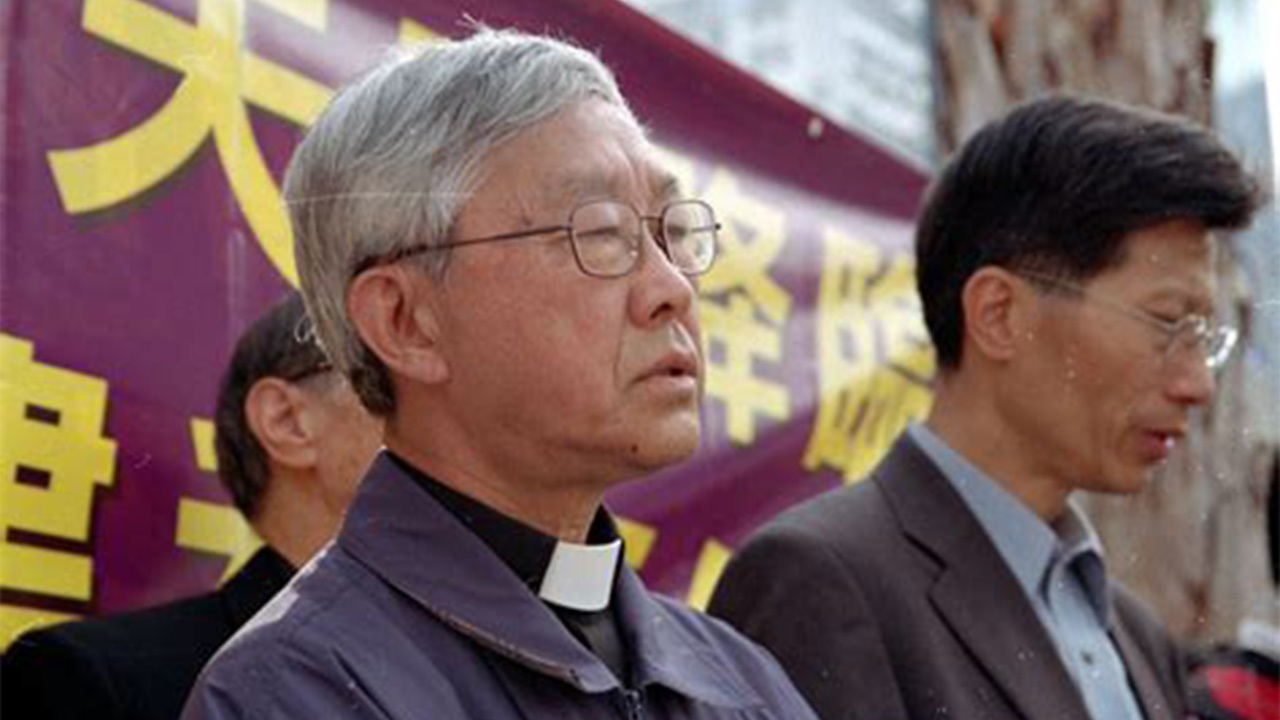


Get a free copy of Parental Rights & Education when you subscribe to our newsletter!

Hong Kong authorities have arrested Cardinal Joseph Zen, a 90-year-old critic of the Chinese Communist Party (CCP), along with four other pro-democracy advocates, for allegedly breaking the government’s national security law.
Many nations would call a 90-year-old cardinal who stands up to tyranny a hero, but in Beijing-backed Hong Kong, he’s considered a threat. Thanks to the controversial national security law passed in Hong Kong in 2020, anyone who challenges the stranglehold authorities have on freedom could find themselves in jail.
Zen, the former Catholic archbishop of Hong Kong who fled China shortly before the communists took over in 1949, was one of five trustees of the 612 Humanitarian Relief Fund arrested this week. The organization helped pro-freedom protestors in financial need in 2019 but has since been abandoned. They were charged with collusion with foreign forces. Cardinal Zen has since been released on bail, but he and the other arrestees face the possibility of life imprisonment.
Cardinal Zen is no stranger to conflict with the Chinese government. At one time he attempted to make inroads with the CCP’s state-controlled Catholic church but soon saw how egregious the lack of religious freedom truly is under CCP rule. China broke its connection with the Catholic church in 1951 and persecuted priests and bishops.
In 2018, he warned against an agreement between the Vatican and China, saying that it would put Catholics in China in a “birdcage.” He added, “The Communist government just wants the church to surrender, because they want complete control, not only of the Catholic Church but all the religions.”
Zen also posted about his journey to Rome, during which he implored the Vatican not to replace an underground bishop with an excommunicated one favored by Beijing.
The Vatican did express concern over his arrest. Prior to Zen’s release, the Catholic Diocese of Hong Kong also spoke out, saying they are “extremely concerned about the condition and safety of Cardinal Joseph Zen.”
U.S. Indo-Pacific coordinator Kurt Campbell said, “All I can tell you is that I think we’re increasingly troubled by steps in Hong Kong to pressure and eliminate civil society.”
The U.K., which returned Hong Kong to Chinese control in 1997 under the agreement that the autonomous region would retain its civil liberties and democratic governing structure, criticized the move. British minister James Cleverly said to Parliament, “The Hong Kong authorities’ decision to target leading pro-democracy figures, including Cardinal Zen, Margaret Ng, Hui Po-keung and Denise Ho, under the National Security Law is unacceptable.”
He added, “We continue to make clear to mainland China and to Hong Kong authorities our strong opposition to the National Security Law, which is being used to curtail freedom, punish dissent, and shrink the space for opposition free press and civil society.”
The National Security law, jammed through by the CCP in the wake of a massive pro-democracy protest movement in Hong Kong, has now been used to raid and shut down independent media, target human rights organizations, arrest and jail protesters and dissidents, and remake Hong Kong’s government by allowing only “patriots” who meet CCP standards to serve as legislative representatives or as government executives. Last week, a Beijing loyalist was “elected” as Hong Kong’s new premier by a CCP-approved committee rather than the Hong Kong people.

You can never completely trust a government to respect freedom, but especially a communist regime. The CCP has proven itself a brutal oppressor of human rights and human freedom, and its shifty and sudden takeover of Hong Kong shows that it will lie, persecute, and terrorize to gain complete control. Zen and the others arrested are no threat to national security; they simply oppose Beijing’s illegal oppression and its breach of promise to allow Hong Kongers to remain a free people.
Unfortunately, this is not being done in a vacuum. China’s tactics in Hong Kong are a frightening parallel to the West’s increasing efforts to shut down dissent and limit freedom in the name of national security and the “greater good.”
This is seen most prominently in Canada, where Prime Minister Justin Trudeau crushed the peaceful Freedom Convoy protests by declaring martial law and where provincial governments have repeatedly arrested and jailed pastors for speaking out against government officials and continuing to hold church services in defiance of COVID orders.
In the U.S., government agencies are increasingly trying to interfere in church business and the lives and businesses of religious Americans in the name of tolerance and secular humanism. We’ve seen the FBI label parents as potential domestic terrorists for speaking out at school board meetings and arrest and jail protesters and students without basic due process protections. And we’re now seeing efforts to block sitting lawmakers from running for office because they’re not “patriotic” enough — despite the fact that they’ve never been charged with sedition or treason, much less convicted.
We are still a long way from the sad and tragic fate of Hong Kong, but the growing push to censor dissenting voices, as well as those who question or even joke about high-ranking government officials or policy, should be a reminder that the U.S., for all of its safeguards and rights, is not immune to the forces of totalitarianism. As so many, from the Founding Fathers to Ronald Reagan, have warned throughout history: Freedom must be tirelessly guarded, or government will take it away. It’s the nature of the beast.

Notifications